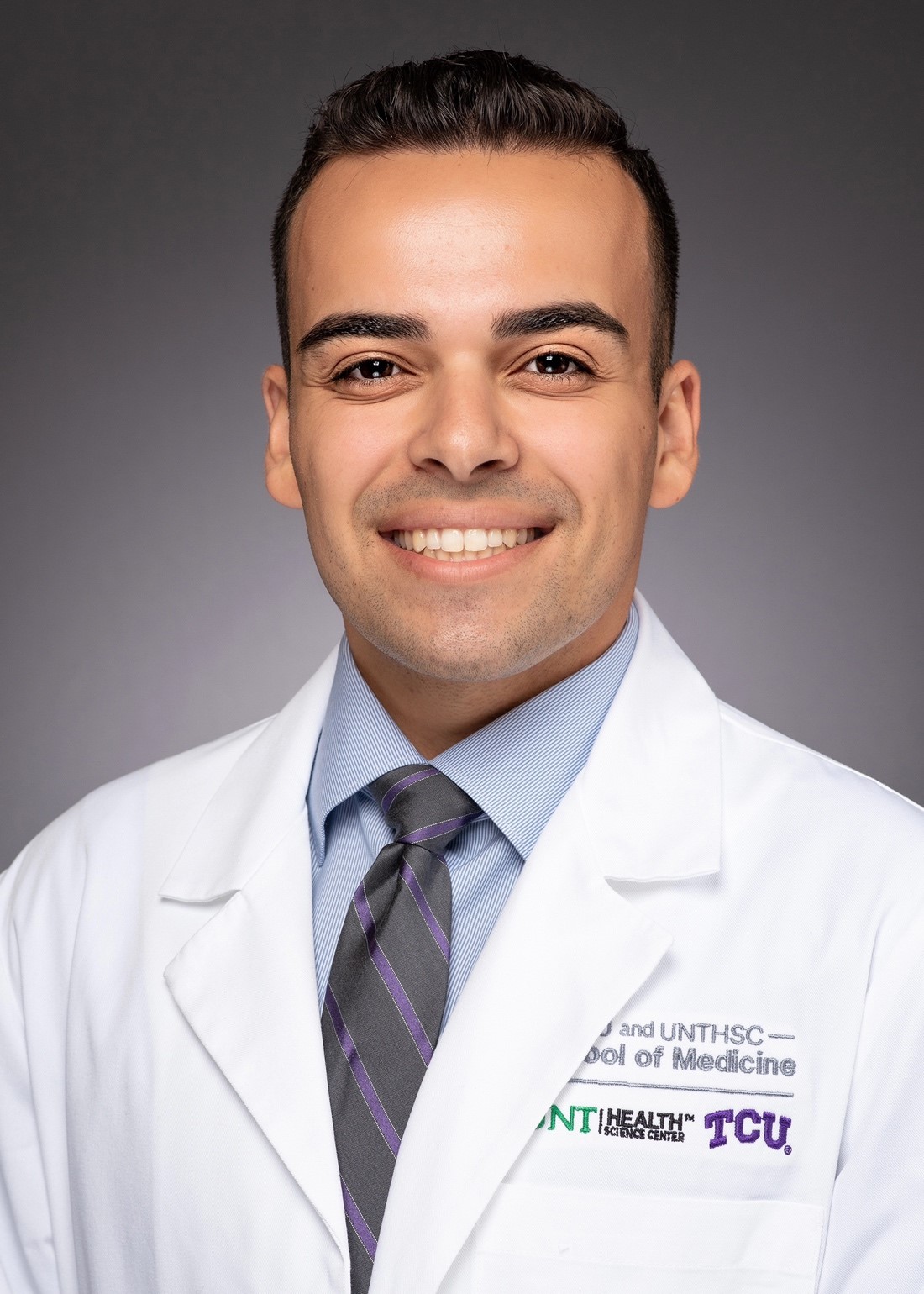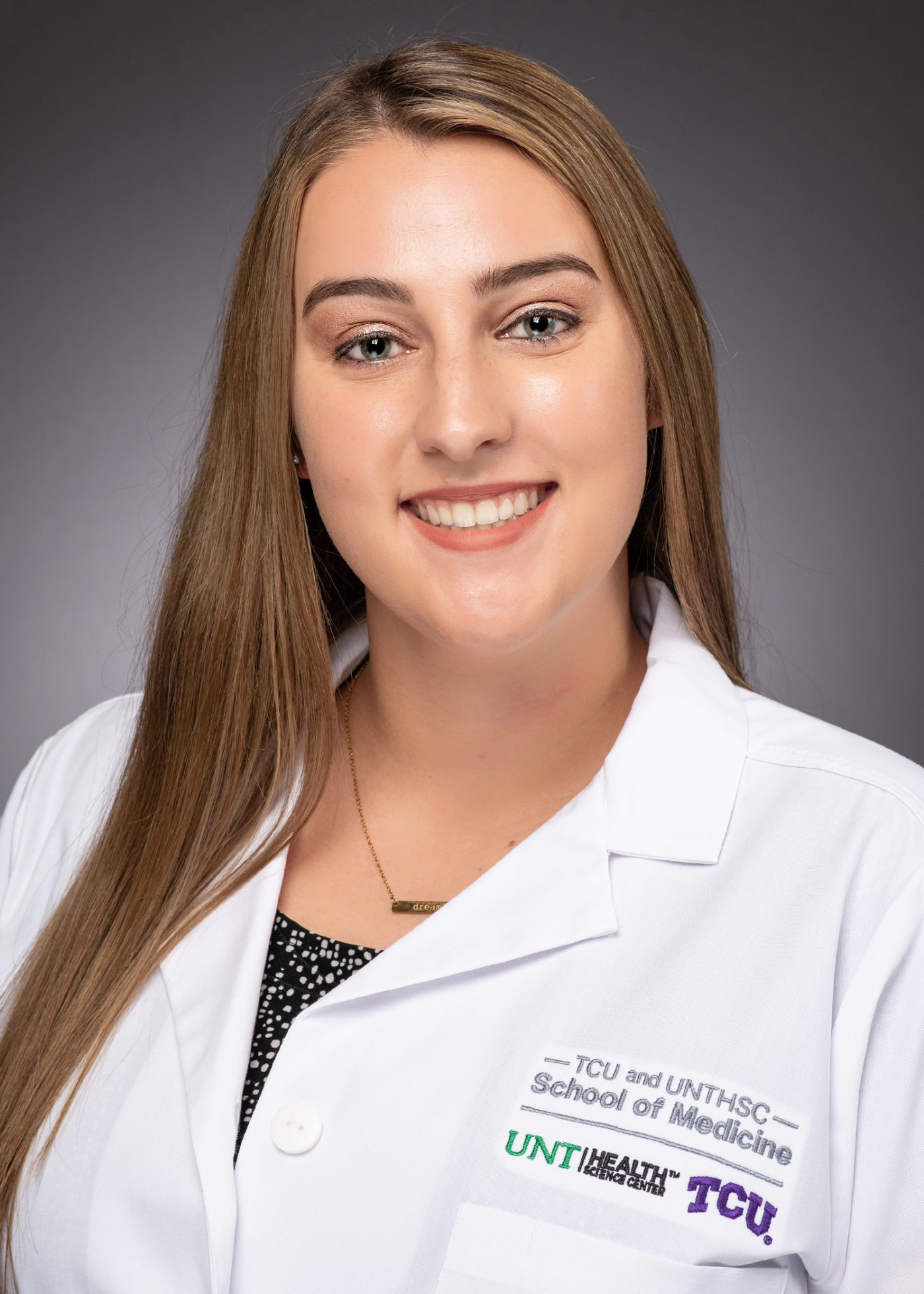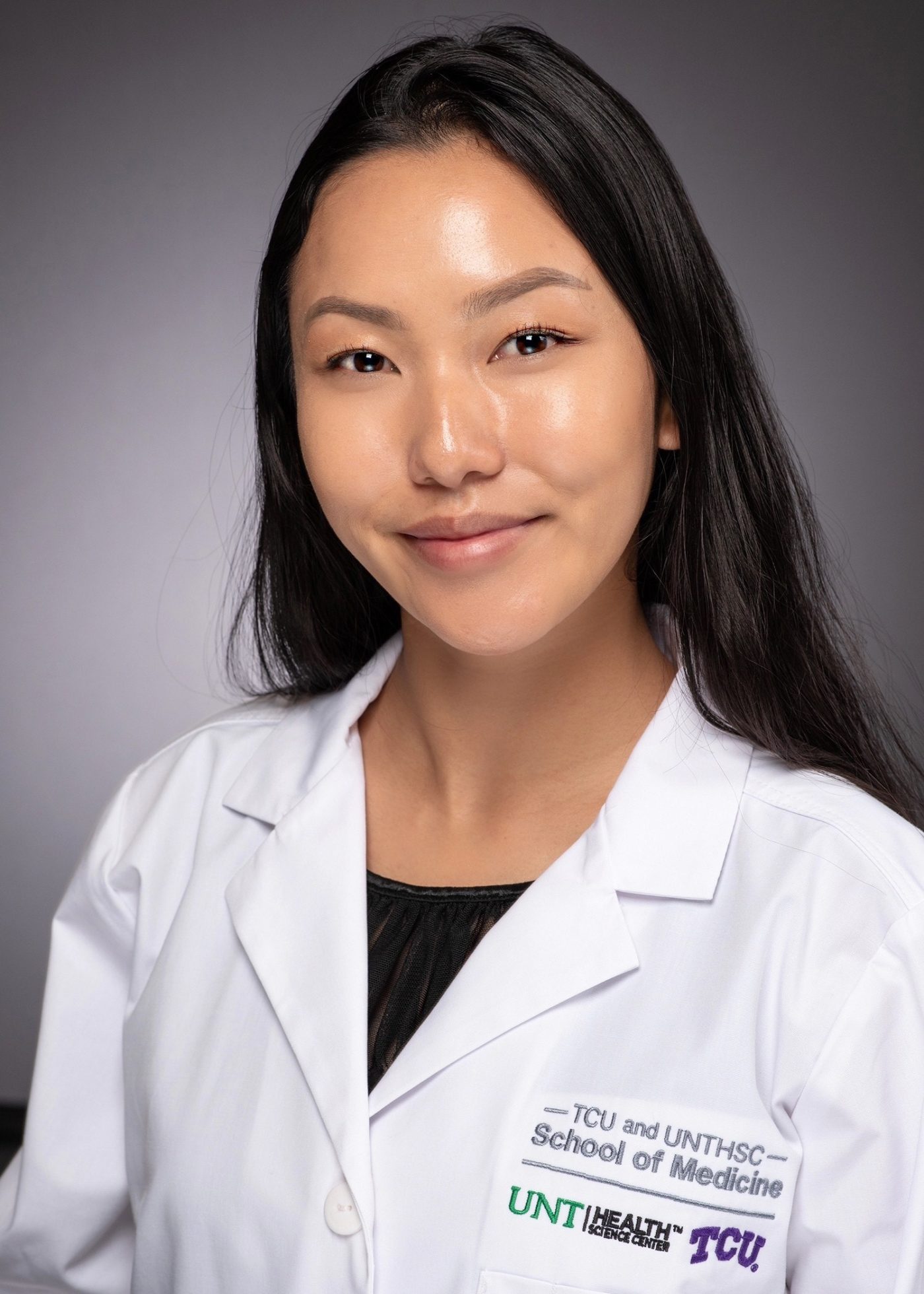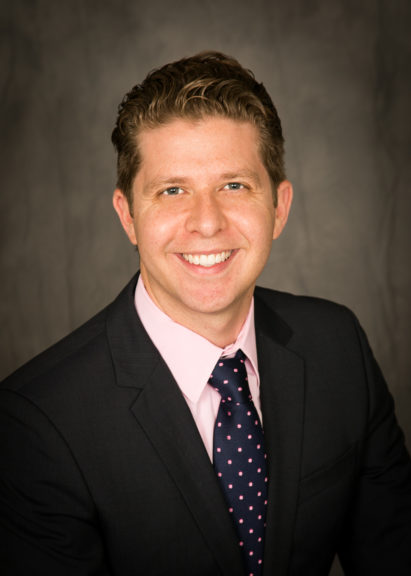As Ethan Vieira opened his box to receive his coveted white coat as a brand new medical student during the White Coat Ceremony at Texas Christian University and University of North Texas Health Science Center, he felt like his dreams were coming true.
He had always dreamed of the day he would receive his iconic white coat, the symbol of a medical student. However, when envisioning his future in med school, Ethan never could have imagined also having two friends, Isabelle Tran and Lindsay Zumwalt, by his side during the ceremony, held this year on Aug. 7 in Fort Worth.
Ethan, along with Isabelle and Lindsay, together held the coveted positions of interns for the summer 2019 Medical Intelligence and Innovation Institute (Mi4) Internship at CHOC. The Sharon Disney Lund Mi4 Internship at CHOC is a one-of-a-kind summer program for high school, college, and graduate students who are destined for careers in the medical field. The program was started in 2013 by Dr. Anthony Chang, MD, MBA, MPH, MS, and the Sharon Disney Lund Foundation.
In summer 2019, Lindsay, Isabelle, and Ethan had the opportunity to learn about emerging technologies, shadow CHOC clinicians, participate in design thinking and clinical case study workshops, and much more over the eight-week internship program.



Two years later, the three former interns started medical school together. In a class of 60 students, Isabelle, Lindsay, and Ethan are part of an elite group of individuals.
“The year we applied, there were 8,000 applications for 60 spots,” Lindsay says. “With a less-than 1% acceptance rate, it’s hard to imagine that the three of us getting into this school was a coincidence.”
Internship was a key to their success
Lindsay, Isabelle, and Ethan believe the Mi4 Internship played a large role in their success during the application cycle.
Lindsay graduated in 2020 from Chapman University with a bachelor’s degree in biological sciences with an emphasis in molecular biology.
As a researcher in the Computational Organic Chemistry Lab at Chapman, Lindsay was no stranger to the intersection of technology, data science, and medicine when she applied to the Mi4 Internship Program in 2019.
“My favorite memory from the Mi4 internship was visiting Dr. Eric Topol, author of ‘Deep Medicine,’ at the Scripps Research Translational Institute,” she says. “Listening to him explain his books, current work, and passions as well as having the opportunity to ask him questions was unforgettable.”
Isabelle, who graduated in 2019 with a degree in psychology and a concentration in cognitive sciences from UC Irvine, felt similarly about the kind of impact the Mi4 internship had on her pre-medical journey, but also noted how it has impacted her personally.
“My brother, Peter, was diagnosed with epilepsy and autism when he was younger, so during the internship, I was able to develop and present an abstract at CHOC’s Grand Rounds for a device that uses artificial intelligence to help children with sensory processing issues,” Isabelle explains.
She says the most profound part of the experience wasn’t necessarily the product she created, but rather the opportunity to empathically understand her brother’s experience with Autism Spectrum Disorder (ASD).
“I was able to work with Peter on this project, which allowed us to become incredibly close,” Isabelle says. “In our design thinking workshops during the internship, we were taught to approach innovation from a patient-centered perspective.”
Isabelle’s introduction to innovation in pediatrics extended beyond the summer-long internship. Following graduation, she had the opportunity to work for Cognoa Inc., a pediatric behavioral health company that makes devices such as one that used artificial intelligence to help primary care doctors diagnose ASD.
This experience, paired with the powerful mentorship of Dr. Sharief Taraman, chief medical officer of Cognoa and Mi4 Internship co-director, set Isabelle up for success when applying to medical schools.

“My time with the Mi4 Internship and Cognoa really connected to my own story and helped me show schools why I want to go into medicine,” Isabelle says.
Making vital connections
All three alumni felt that the Mi4 Internship provided a critical glimpse into the world of medicine.
“None of us came from a background in medicine,” explains Ethan, “so when it came to having a network of support, the connections that we made in Mi4 provided that system.”
Ethan was one of several interns who received new job opportunities following his time as an intern. Working with the Mi4 Department, Ethan, a 2021 graduate of Chapman University with a master’s degree in health and strategic communication, helped create a scribing program in CHOC’s neurology, general surgery, and endocrine clinics, with a direct pipeline to the Mi4 Alumni Network.
“Scribing is one of the best clinical experiences that a pre-medical student can have, so we were excited to provide this opportunity to an entire community of students,” Ethan says.
Gaining a competitive edge
Not only did the Mi4 internship provide its graduates with necessary clinical exposure and networking opportunities, Lindsay also felt as though it gave program alumni a competitive edge.
“The Mi4 internship gave us a unique perspective on medicine, showing us how to constantly identify and address opportunities for growth and improvement in our various healthcare experiences,” Lindsay says.
This kind of mindset was reflected in the decision that each of these internship graduates made to attend Texas Christian University (TCU) and University of North Texas Health Science Center (UNTHSC) School of Medicine.
“All of us had different schools to choose from,” Lindsay says. “So, I think the fact that we all chose this school is a testament to Mi4’s impact on our path to medicine.”
TCU and UNTHSC School of Medicine is a new medical school with a passion for training physicians of the future. All three agreed that TCU and UNTHSC’s dedication to innovation played a large role in their decision to enroll.
Says Ethan: “This school’s innovation curriculum closely models many of the things that we did as Mi4 interns. Through the Future Accelerators of Medicine and Beyond (FAB) program, we learn how to apply technology to our future medical practices.”
The school’s FAB program incorporates the principles of design thinking and innovative problem solving into the traditional curriculum, both of which the Mi4 alumni are extremely familiar with.
When asked about the transition from Orange County to Fort Worth, Isabelle says: “It has been nerve- wracking to move to a totally new state by myself. As I am starting this new chapter of my life, it has been comforting to have friendly faces by my side.”
Isabelle, Ethan, and Lindsay all agree that the peer connections they made through the Mi4 Internship have persisted since their summer ended in 2019. Problem-solving, teamwork and leadership skills aside, they believe that one of the most important things gained through the summer internship was access to the Mi4 family and community.
Debra Beauregard, a leadership officer in the Mi4 Department, reports that after the 2021 summer program, the Mi4 Internship will have graduated over 600 interns
“We receive more than 350 fantastic applications each year for just 65 spots,” she says. “Because the process of getting in is so competitive, the interns who do get selected are the best of the best.”
One of Debra’s favorite parts of the internship is seeing all of the amazing things Mi4 alumni accomplish after graduating. In a 2021 survey, 91% of responding alumni who have completed their undergraduate studies are currently working or studying in a health-related field.
“Moving forward through these next four years of medical school,” says Lindsay, “I’m lucky to be able to surround myself with individuals who are equally passionate about advancing the future of pediatrics through innovation.”




